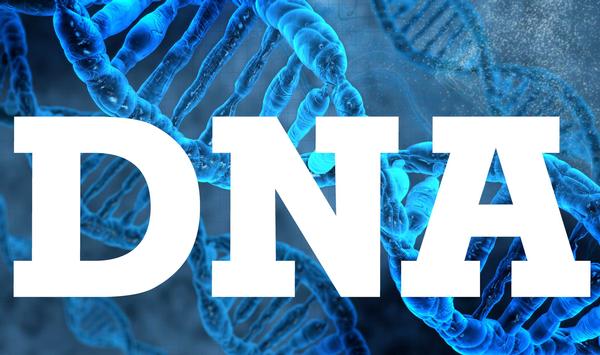 SELECTED
ISSUE
SELECTED
ISSUE
|
|
Leisure Management - Making it personal

DNA testing

|
|
| Making it personal
|

More commonly associated with crime scenes and paternity tests, DNA testing is going mainstream – and it’s time for health clubs to get on board. Kath Hudson reports
|


MAKING IT PERSONAL PHOTOS: SHUTTERSTOCK.COM


David Lloyd Leisure first introduced DNA testing in September 2015 PHOTOS: SHUTTERSTOCK.COM

DNA testing can help improve retention, as clients may see quicker results PHOTOS: SHUTTERSTOCK.COM


DNA testing could be the next real market disruptor in the fitness sector PHOTOS: SHUTTERSTOCK.COM
|
|
|
ach time you have a new member, rather than embarking on a training programme you think will progress them towards their goals, wouldn’t it be great to immediately give them a training programme and diet plan that’s tailored to their genetic make-up – a way of helping them get better, and quicker, results? Wouldn’t it also be great to know the member is more engaged and motivated to change their behaviour, because they know their programme is perfectly tailored to them and not the result of informed guesswork? With DNA tests tailored to health and fitness now costing as little as £99, this knowledge is now available to everyone. Better, faster results
DNA testing might conjure up images of laboratories and blood samples, but it’s very simple to do: a quick mouth swab can simply be popped in the post. Fitness profiles commonly tested for are power, endurance, risk of injury and recovery time. Meanwhile, from a nutrition point of view, DNA profiling can reveal how people react to carbs or saturated fats, and which type of diet suits them best. It can also uncover any intolerances, as well as vitamin deficiencies, that might be causing issues – a suppressed immune system or fatigue, for example. So how effective are DNA-based programmes? Anecdotal evidence says that, if people follow their training programmes, results are both better and quicker. A two-year study of 191 obese people – conducted by the University of Trieste in Italy – also showed encouraging results. Those on DNA-based diets lost 33 per cent more weight than those who were simply counting calories. They also gained more muscle mass and their BMI went down by an average of 1.8 points, compared with 1.3 for the other group. But is there a down side to all this science? Do consumers want it? Do the resulting programmes guarantee success? What are the barriers to introducing the tests, and what infrastructure needs to be put in place to make them work well? Will you get left behind if you don’t offer this service?
|
|
 |

Chris Collins
Product developer
My Inner Go
 |
|
At the moment, gym instructors are only taking individuals’ stated goals and environment into account when designing training and nutrition plans. DNA testing allows for genuine personalisation based on genetics.
We test for 187 genetic variants, within 30–40 genes, to inform decisions about which sports and nutrition people are most suited to, as well as identifying any vitamin deficiencies.
It’s not about being told you can’t do a sport, but rather how to make the best of your attributes: whether you’re more suited to power or endurance activities. For example, if we test a footballer and find out they’re not suited to endurance activity, they know they need to focus more on the skill and power movements. It’s a way of knowing yourself better and then using that information.
DNA testing allows clubs to take training to a more scientific level. It could be offered as part of the membership or could be another revenue stream; it also offers an opportunity to upsell people into PT. In addition, by helping members get better results, it also aids retention.
In the next five years, operators will be forced to embrace this technology – so better to buy into it now and make a name for themselves.
"In the next five years, operators will be forced to embrace DNA technology. Better to buy into it now and make a name for themselves" – Chris Collins, My Inner Go
|
|
 |

Kate Brooker
National Operations Manager
Lifestyle Fitness Personal Training, UK
 |
|
We introduced DNA testing into our nationwide PT business last year, through Genefit DNA. We started with a number of our own PTs taking the tests and implementing the recommended protocols. They saw a big difference in their results, which made it easier for them to promote the benefits to clients.
It takes out the trial and error approach, allowing us to give clients a bespoke plan and advise on their individual needs. For example, I’d always done endurance sports, but my tests showed I was more suited to power sports. Reducing the amount of endurance work I did and adding in some power exercises like dead lifting gave me better results. Meanwhile one of our PTs – a competitive bodybuilder – found he could achieve greater results if he built in more recovery time during his training.
We’re now increasing awareness and promotion of DNA testing. We’re having to do some re-education, as some people assume it’s really only for elite athletes, but the interest we’re getting is phenomenal.
Retention has improved because clients are seeing results quicker – they’re staying positive and keeping on track. If a person sticks to their training programme, they can see results within one month.
The test costs £99 and the results come back within four weeks. Genefit DNA then offers a consultation, giving a full breakdown of what the results mean, and we then develop a tailor-made training and nutrition plan. It’s a great addition to the PT tool kit and is also an additional revenue stream.
|
|
|
DNA tests give people extra information so they can make better informed lifestyle choices. For example, if a test indicates that someone has a high genetic risk of injury, they know they may need to take more time to warm up.
Also, the ‘one size fits all’ approach to diets has long been a problem, leaving consumers at the mercy of frequently changing, often bad advice. DNA testing could prove to be an important factor in tackling the UK’s obesity problem.
We’ve been involved with an obesity intervention project in the east of England. In the Enable East pilot project, 56 people took DNA tests and were given tailored exercise plans. They were also assigned one of five diet plans, taking into account any dietary intolerances the tests uncovered. If the programme is successful, it will pave the way to roll out this technology across the health service.
People are getting used to the idea of big data, and soon it will be a no-brainer for all health clubs to be offering DNA testing. It’s a really exciting opportunity to disrupt the marketplace and make a difference. The tests can give people the information they need to solve issues that have been bothering them for years, and can be useful for behaviour change as people know the advice is truly personalised to their needs.
|
|
 |

Raul Tornel
Transformation Director
Grupo Marti, Mexico
 |
|
As a premium operator, we’re always looking for products to offer a high-end service and for ways to help our members get the best results.
When we started offering DNA tests across our 40 Sport City Fitness Clubs around two years ago, they were part of a premium membership package: they were included in the membership if people committed to the club for a year. Now we’re also selling them as an add-on.
We test for three things: what type of exercise/training you’re best suited to; how you react to certain foods; and your body’s risk of injury and ability to recuperate. On average, members on DNA-based programmes see a 10–15 per cent greater improvement in strength, CV capacity and weight loss than those on standard programmes. Results also happen quicker. In addition, users have a clearer objective and a greater sense of urgency.
The challenge has been to train all of our staff so they’re able to deliver the techniques, as well as training the sales staff to sell the service. Trainers need to be able to deliver the tests and the programmes, and follow up.
It’s not a magic pill: there still has to be commitment from the members and our team have to encourage them to follow through, as well as follow up on their training. But I believe that, as testing techniques even get more advanced and more information becomes available, we’ll be able to get even better results.
"Those on DNA-based programmes see a 10–15 per cent greater improvement than those on standard programmes" – Raúl Tornel
|
|
 |

Hazel Geary
Business Development Director
David Lloyd Leisure, UK
 |
|
DNA testing gives us the opportunity to offer our members a more holistic approach to their health. It was introduced to our clubs in September 2015 – part of a multi-faceted project to create more personalised programmes, help members achieve their goals, save them time and avoid fads.
We’re now offering sophisticated body composition tests, weight loss sessions and online meal planners, so DNA testing is the final piece of the puzzle.
When they get the results, members have a one-hour consultation with a PT from which they take away an action plan, signposting them to our other products and services to support the change they desire. The test itself costs £159, but all of the support for the action plan is offered as part of their membership. Trainers check in with members every six weeks with a programme review.
It took 12 months to implement our new approach – to make sure we had the right mix of products and the right partners, ensure our staff understood the overall product mix and had bought into it, train the staff to deliver it, and embed the new approach into our teams.
I believe the health and fitness industry is moving further towards personalisation. Lots of health clubs are doing this on digital platforms only, but our model allows us to offer more face-to-face interaction to support members throughout their journey.
|
|
 |
| Originally published in Health Club Management 2016 issue 1
|
|
 |
|